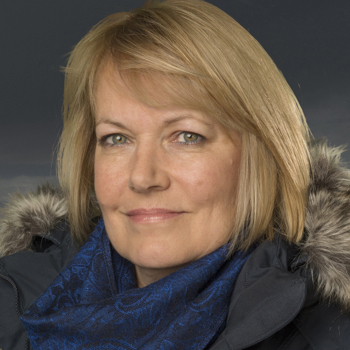
Jane Francis
British Antarctic Survey
United Kingdom
BSCB
BSDB
Biologists @ 100 will incorporate the Spring Meetings of the British Society for Cell Biology (BSCB) and the British Society for Developmental Biology (BSDB).
The programme will also include BSCB and BSDB medal talks and announcements, as well as the societies’ AGMs.
We offer discounted Biologists @ 100 conference registration fees for BSCB and BSDB members. Find out more about BSCB membership or BSDB membership if you are not yet a member.
Registration and refreshments
Hall 2
When
Monday 24 March
14:00 - 15:30
Location
Hall 2
Biologists @ 100 opening remarks
Hall 1A
When
Monday 24 March
15:30 - 16:00
Location
Hall 1A
BSCB and BSDB medals and lecture
Hall 1A
When
Monday 24 March
16:00 - 17:45
Location
Hall 1A
Session Description
16:00-16:45 BSCB Hooke Medal
16:45-17:15 BSCB PhD student Raff Medal Lecture
17:15-17:45 BSDB Tickle Medal
Biologists @ 100 plenary session
Biodiversity and climate change
Hall 1A

Jane Francis
British Antarctic Survey
United Kingdom
Jane Francis is Director of the British Antarctic Survey. Her research interests are in past climate change, using fossils to determine the change from greenhouse to icehouse climates in the Arctic and Antarctica over the past 100 million years. She has undertaken over 15 scientific expeditions to the polar regions in search of fossil forests and information about climates of the past.
Biologists @ 100 plenary session
Tuesday 25 March 09:00 - 10:30
Hall 1A
Plenary sessions
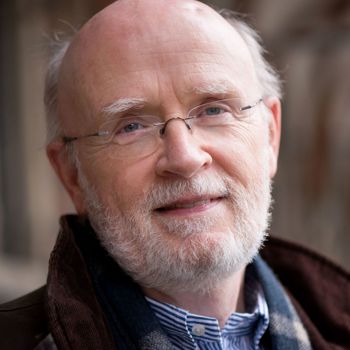
Hans-Otto Pörtner
Alfred Wegener Institute
Germany
Hans-Otto Pörtner is a researcher in ecophysiology. He has established theory and evidence on effects of climate warming, ocean acidification, and hypoxia on (marine) animals and ecosystems. His efforts focus on linking biogeography and ecosystem functioning to molecular, biochemical and physiological mechanisms shaping organism tolerance and performance. In October 2015 he was elected Co-Chair of IPCC Working Group II for its 6th assessment cycle. He is an elected member of the European Academy of Sciences, the German Advisory Council on Global Change and a Web of Science highly cited researcher 2018 onward.
Biologists @ 100 plenary session
Tuesday 25 March 09:00 - 10:30
Hall 1A
Plenary sessions
Morning refreshment break and exhibition
Hall 2
When
Tuesday 25 March
10:30 - 11:00
Location
Hall 2
Session I: Patterning and morphogenesis
Hall 1B
When
Tuesday 25 March
11:00 - 12:30
Location
Hall 1B
Session Description
|
11:00-11:20 |
Alexander Aulehla, EMBL, Germany |
|
11:20-11:35 |
Selected speaker 1 |
|
11:35-11:55 |
Chris Whitewoods, University of Cambridge, UK |
|
11:55-12:10 |
Selected speaker 3 |
|
12:10-12:30 |
Margarida Cardoso-Moreira, The Francis Crick Institute, UK |
Speakers
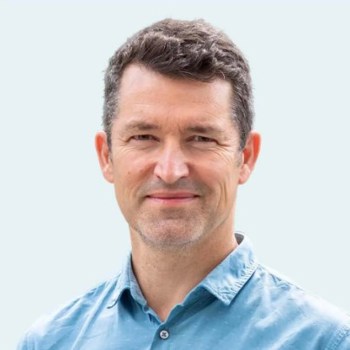
Alexander Aulehla
EMBL
Germany
Session I: Patterning and morphogenesis
Tuesday 25 March 11:00 - 12:30
Hall 1B
Programme: Cell and developmental biology
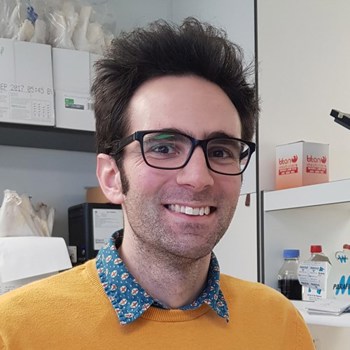
Chris Whitewoods
University of Cambridge
United Kingdom
Chris Whitewoods is a Career Development Fellow at the Sainsbury Laboratory in Cambridge, where he investigates internal leaf patterning. Current projects include how intercellular air spaces form, and the genetic control of palisade and spongy mesophyll cell identity.
Session I: Patterning and morphogenesis
Tuesday 25 March 11:00 - 12:30
Hall 1B
Programme: Cell and developmental biology
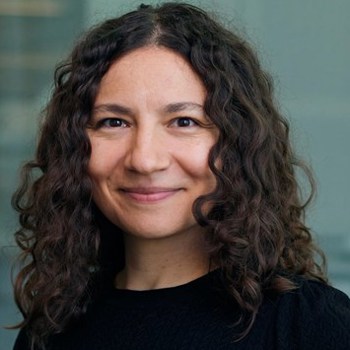
Margardia Cardoso Moreira
Francis Crick Institute
United Kingdom
Margarida is an evolutionary biologist. She did her PhD research at the University of Chicago with Manyuan Long, followed by a postdoc at Cornell with Andrew G. Clark. She then joined Henrik Kaessmann's group (at the University of Lausanne and Heidelberg University), where she spearheaded a research program on the evolution of mammalian organs, for which she received the Otto-Schmeil prize from the Heidelberg Academy of Sciences and Humanities. Margarida started her group at the Francis Crick Institute in 2021. Her group studies how organs originate and how they change in form and function across species.
Session I: Patterning and morphogenesis
Tuesday 25 March 11:00 - 12:30
Hall 1B
Programme: Cell and developmental biology
Session II: Cell division and proliferation
Hall 1C
When
Tuesday 25 March
11:00 - 12:30
Location
Hall 1C
Session Description
|
11:00-11:20 |
Jordan Raff, University of Oxford, UK |
|
11:20-11:35 |
Selected speaker 2 |
|
11:35-11:55 |
Ritwick Sawarkar, University of Cambridge, UK |
|
11:55-12:10 |
Selected speaker 4 |
|
12:10-12:30 |
Susana Godinho, Queen Mary University of London, UK |
Speakers
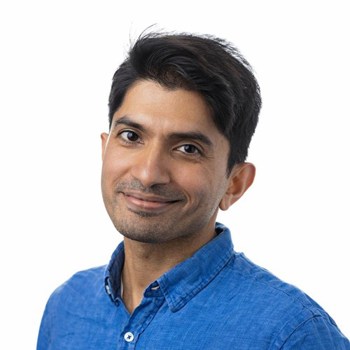
Ritwick Sawarkar
University Of Cambridge
United Kingdom
Ritwick studied Microbiology and Biochemistry in Mumbai (India) and obtained his PhD in 2010 from Indian Institute of Science, Bangalore. Ritwick then moved to the Department of Biosystems Science and Engineering of ETH-Zürich in Basel (Switzerland) as a postdoctoral fellow with Renato Paro. In 2014, Ritwick started his own independent group at the Max Planck Institute of Immunobiology and Epigenetics in Freiburg (Germany), before moving to the MRC, University of Cambridge in 2019. Ritwick received the ERC Consolidator Grant in 2018 and Alfred Tissières Young Investigator Award in 2019.
Session II: Cell division and proliferation
Tuesday 25 March 11:00 - 12:30
Hall 1C
Programme: Cell and developmental biology
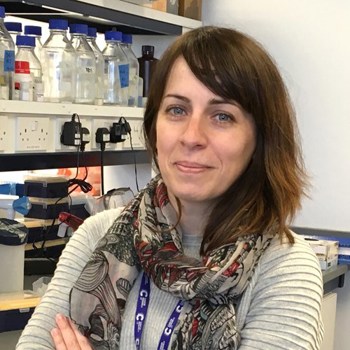
Susana Godinho
Queen Mary University Of London
United Kingdom
Susana received her undergraduate degree from the Faculty of Sciences - University of Lisbon. She did her PhD at Gulbenkian Institute of Science (Portugal) and Cambridge University (UK) where she studied the role of Polo kinase during mitosis in Drosophila. She then moved to Boston (USA) to do a postdoc at Dana-Farber Cancer Institute, Harvard Medical School where she become interested in the role of amplified centrosomes during mitosis and cell invasion. Susana started her lab at Barts Cancer Institute - QMUL in 2013. Her lab focused on understanding how morphological alterations on centrosomes and microtubules alter cell physiology and contribute to tumourigenesis.
Session II: Cell division and proliferation
Tuesday 25 March 11:00 - 12:30
Hall 1C
Programme: Cell and developmental biology
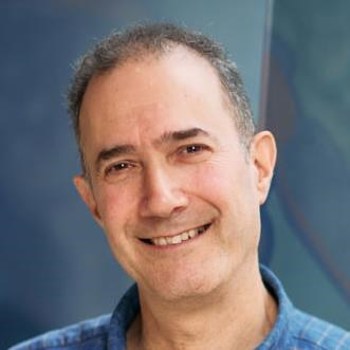
Jordan Raff
University of Oxford
United Kingdom
Jordan studied Biochemistry at Bristol University and for his PhD at Imperial College London, where he started to work on centrosomes and cell division in Drosophila. He has continued to work in these areas throughout his career, first as a post-doctoral fellow at the University of California, San Francisco, then as a Wellcome or CRUK funded group leader at the Gurdon Institute in Cambridge. He moved to the Sir William Dunn School of Pathology in Oxford in 2009 to become the Milstein Chair of Cancer Cell Biology. He has served as President of the British Society for Cell Biology, and in various roles for the Company of Biologists—most importantly as the first Editor in Chief of Biology Open. He is an EMBO member, and a Fellow of the Academy of Medical Science and of the Royal Society. He has always taken a keen interest in science communication and promoting the public understanding of science.
Session II: Cell division and proliferation
Tuesday 25 March 11:00 - 12:30
Hall 1C
Programme: Cell and developmental biology
Biologists @ 100 lunch and exhibition
Hall 2
When
Tuesday 25 March
12:30 - 13:30
Location
Hall 2
Session III: Organelle dynamics
Hall 1B
When
Tuesday 25 March
13:30 - 15:00
Location
Hall 1B
Session Description
| 13:30 - 13:50 | Jennifer DeLuca, Colorado State University, USA |
| 13:50 - 14:05 | Selected speaker 5 |
| 14:05 - 14:25 | Tom McVicar, CRUK Scotland Institute, UK |
| 14:25 - 14:40 | Selected speaker 7 |
| 14:40 - 15:00 | Alpha Yap, The University of Queensland, Australia |
Speakers
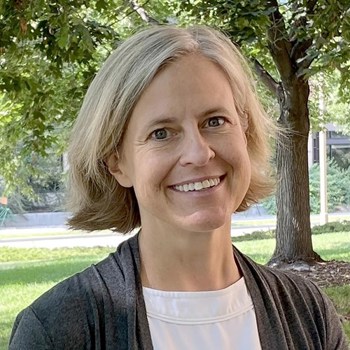
Jennifer DeLuca
Colorado State University
United States
The work in our lab focuses on mitotic cell division. We are working to try to unravel the mechanisms for how cells divide their genetic material exactly into two daughter cells during mitosis, which is essential to ensure genomic integrity. We also aim to understand how chromosome alignment and dynamics become deregulated in cancer cells to better understand how and why cancer cells commonly undergo defective cell division.
Session III: Organelle dynamics
Tuesday 25 March 13:30 - 15:00
Hall 1B
Programme: Cell and developmental biology
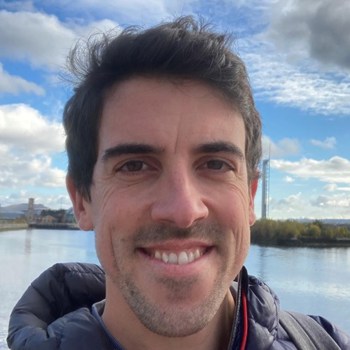
Tom Macvicar
CRUK Scotland Institute
United Kingdom
Tom is a Junior Group Leader and CRUK Career Development Fellow at the CRUK Scotland Institute (formerly Beatson Institute) and University of Glasgow. He established his lab in 2022 where his research group explores how mitochondria are reprogrammed in tumours with an overall goal to target metabolic plasticity in cancer. He joined the BSCB committee in 2023.
Session III: Organelle dynamics
Tuesday 25 March 13:30 - 15:00
Hall 1B
Programme: Cell and developmental biology
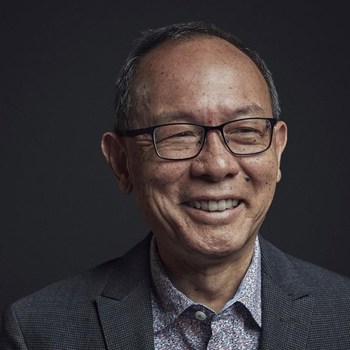
Alpha Yap
The University of Queensland
Australia
Alpha Yap is an Australian Research Council Laureate Fellow. He and his lab seek to understand tissue mechanobiology: how mechanical forces control the behaviour of complex, multicellular tissues in health in disease. Their recent work focuses on characterising the cellular mechanisms that mediate mechanical homeostasis in epithelia, and testing how these support homeostasis against cell death and transformation.
They’ve been helped in this endeavour by the generous support of developmental biologists, physicists, engineers and clinicians. Alpha has led international conferences and the Australia and New Zealand Society for Cell Biology; serves as editor for several international journals; was Division Head at the University of Queensland’s Institute for Molecular Bioscience; is an EMBO Associate member and and a Lifetime Fellow of the American Society for Cell Biology. His spare time is occupied by a quixotic attempt to play the piano.
Session III: Organelle dynamics
Tuesday 25 March 13:30 - 15:00
Hall 1B
Programme: Cell and developmental biology
Session IV: Cellular and developmental basis of disease
Hall 1C
When
Tuesday 25 March
13:30 - 15:00
Location
Hall 1C
Session Description
| 13:30 - 13:50 | Myriam Hemberger, University of Calgary, Canada |
| 13:50 - 14:05 | Selected speaker 6 |
| 14:05 - 14:25 | Loydie Jerome-Majewska, McGill University, Canada |
| 14:25 - 14:40 | Selected speaker 8 |
| 14:40 - 15:00 | Maneesha Inamdar, inStem, India |
Speakers
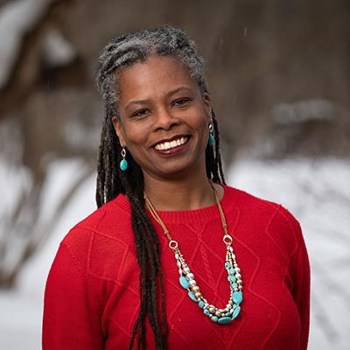
Loydie Jerome-majewska
Mcgill University
Canada
Dr. Loydie Jerome-Majewska is a Full Professor in the Department of Pediatrics, and associated member of the Departments of Human Genetics and Anatomy and Cell biology at McGill University.
She completed her PhD work with honors in the laboratory of Dr. Papaioannou at Columbia University, NYC, USA and a post-doctoral fellowship with Dr. E. Lacy, at Sloan Kettering Cancer Centre. Dr. Jerome-Majewska’s group uses the mouse model to study the genetic and cellular basis of morphogenesis during the embryonic period. Goals of her research program are to identify genes responsible for congenital malformations that increase morbidity and mortality in newborns. The current goal in the Jerome-Majewska laboratory is to uncover molecular factors or pathways which can be targeted to prevent/reduce morbidity associated with congenital malformations. Her work is funded by the Canadian Institute of Health and the Natural Sciences and Engineering Research Council
In addition, she is Editor-in-Chief for Differentiation and co-Founder of the Canadian Black Scientist Network which has over 700 members. Dr. Jerome-Majewska is a Fellow of the American Association for Anatomy and has received numerous awards for her research and equity work.
Session IV: Cellular and developmental basis of disease
Tuesday 25 March 13:30 - 15:00
Hall 1C
Programme: Cell and developmental biology
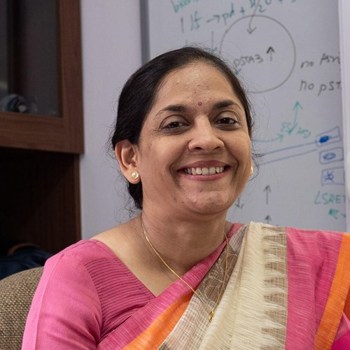
Maneesha Inamdar
inStem
India
Session IV: Cellular and developmental basis of disease
Tuesday 25 March 13:30 - 15:00
Hall 1C
Programme: Cell and developmental biology
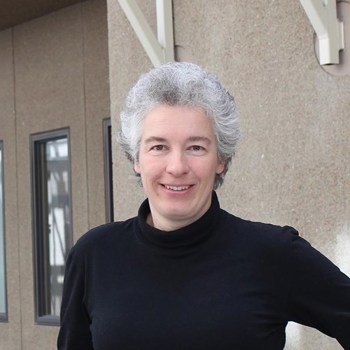
Myriam Hemberger
University of Calgary
Canada
Session IV: Cellular and developmental basis of disease
Tuesday 25 March 13:30 - 15:00
Hall 1C
Programme: Cell and developmental biology
Afternoon refreshment break and exhibition
Hall 2
When
Tuesday 25 March
15:00 - 15:30
Location
Hall 2
BSDB Waddington Medal talk & BSDB Lewis Wolpert Medal announcement
Hall 1A
When
Tuesday 25 March
15:30 - 16:45
Location
Hall 1A
BSDB AGM
Hall 1B
When
Tuesday 25 March
16:45 - 17:30
Location
Hall 1B
BSCB AGM
Hall 1C
When
Tuesday 25 March
16:45 - 17:30
Location
Hall 1C
Biologists @ 100 drinks reception, posters and exhibition
Hall 2
When
Tuesday 25 March
17:00 - 18:30
Location
Hall 2
Biologists @ 100 plenary session
Health and disease
Hall 1A
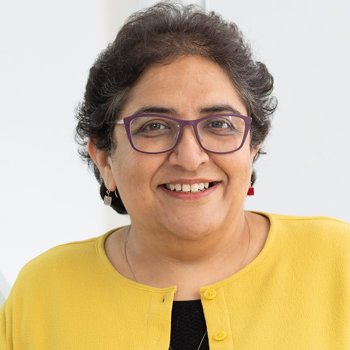
Sadaf Farooqi
University of Cambridge
United Kingdom
Professor Sadaf Farooqi (PhD, FRCP, FMedSci, FRS) is a Wellcome Principal Research Fellow and Professor of Metabolism and Medicine at the University of Cambridge, UK. She is an internationally leading Clinician Scientist who has made seminal contributions to understanding the genetic and physiological mechanisms that underlie obesity and its complications. The work of Sadaf Farooqi and her colleagues has fundamentally altered the understanding of how body weight is regulated. With colleagues, she discovered and characterised the first genetic disorders that cause severe childhood obesity and established that the principal driver of obesity in these conditions was a failure of the control of appetite. Her work is often cited as an exemplar of how the translation of research into the mechanisms of disease can lead to patient benefit. She has received a number of awards including the 2024 Outstanding Clinical Investigator Award from the Endocrine Society. In 2021, she was elected as a Fellow of the Royal Society in recognition of her exceptional contribution to science.
Biologists @ 100 plenary session
Wednesday 26 March 09:00 - 10:30
Hall 1A
Plenary sessions
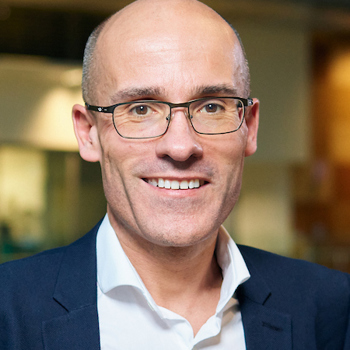
Charles Swanton
The Francis Crick Institute
United Kingdom
Biologists @ 100 plenary session
Wednesday 26 March 09:00 - 10:30
Hall 1A
Plenary sessions
Morning refreshment break and exhibition
Hall 1A
When
Wednesday 26 March
10:30 - 11:00
Location
Hall 1A
Session V: Mechanobiology
Hall 1A
When
Wednesday 26 March
11:00 - 12:30
Location
Hall 1A
Session Description
| 11:00 - 11:20 | Ewa Paluch, University of Cambridge, UK |
| 11:20 - 11:35 | Selected speaker 9 |
| 11:35 - 11:55 | Victoria Sanz Moreno, The Institute of Cancer Research, UK |
| 11:55 - 12:10 | Selected speaker 10 |
| 12:10 - 12:30 | Alba Diz-Munoz, EMBL, Germany |
Speakers
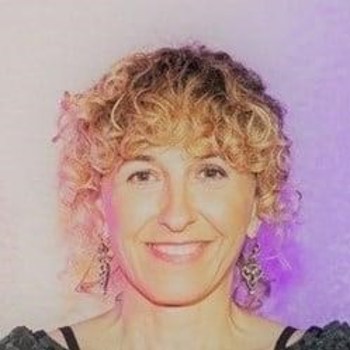
Victoria Sanz-Moreno
The Institute Of Cancer Research
United Kingdom
Victoria Sanz-Moreno received a degree in chemistry and later in biochemistry (University of Oviedo, Spain) followed by a PhD in chemical sciences studying Ras-MAPK signalling (University of Cantabria). She then joined Professor Chris Marshall’s lab at The Institute of Cancer Research in London as a Marie Curie Intra-European Postdoctoral Fellow. In 2008, she received the Applied Biosystems and EACR 40th Anniversary Research Award for her work on Rho GTPase signalling during cancer dissemination.
In 2011, Victoria started her independent group and received a CRUK Career Development Fellowship at King's College London to study transcriptional programs driving metastasis. In 2015, she was highly commended as CRUK Communications and Brand Ambassador. In 2017, she was awarded the BSCB Women in Cell Biology Early Career Award Medal and she received a CRUK Senior Fellowship to study the role of Rho kinase in cancer progression and therapy responses. In 2017-2018, she was featured by Journal of Cell Science as “Cell Scientist to Watch” and by Journal of Cell Biology for her work on Rho GTPases.
In 2018, Victoria joined Barts Cancer Institute (Queen Mary University of London) as Professor of Cancer Cell Biology to study how cytoskeletal dynamics in metastatic cancer cells alter the tumour microenvironment. In 2021, she was elected to be part of “Ruta de las Cientificas”- an App celebrating the achievements of 9 women in STEM. In 2022 she received the Estela Medrano Memorial Award from the Society for Melanoma Research, the VP Award for Research Excellence from Queen Mary's Faculty of Medicine and Dentistry and the Research Impact Award at Barts Cancer Institute.
In September 2023, Victoria’s lab moved to the Breast Cancer Now Toby Robins Research Centre at The Institute of Cancer Research. Combining cell biology, OMICs, mouse models, patient material and digital pathology, Victoria’s lab works on understanding how cytoskeletal dynamics in cancer cells control local invasion, dissemination, survival and outgrowth at the secondary site. Her lab is interested in deciphering how metastatic cancer cells interact with their microenvironment while evading anti-cancer therapies while the ultimate goal is to find anti-metastasis therapies.
She is passionate about science communication and promoting diversity in science.
Session V: Mechanobiology
Wednesday 26 March 11:00 - 12:30
Hall 1A
Programme: Cell and developmental biology
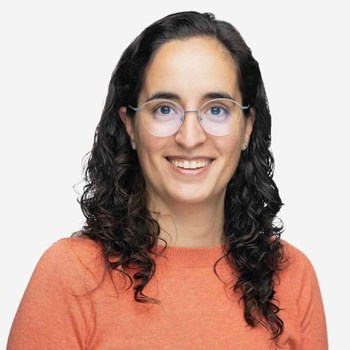
Alba Diz-Muñoz
European Molecular Biology Laboratory (EMBL)
Germany
Mechanics lay at the heart of much of physiology and pathology. My laboratory at the EMBL in Heidelberg studies cellular force transduction and mechanical signaling in animal cells and tissues by combining imaging and biophysical approaches with protein engineering. Our material science perspective has allowed us to obtain fundamental insights to enhance immunotherapy, gate stem cell differentiation and improve cancer treatment.
Session V: Mechanobiology
Wednesday 26 March 11:00 - 12:30
Hall 1A
Programme: Cell and developmental biology
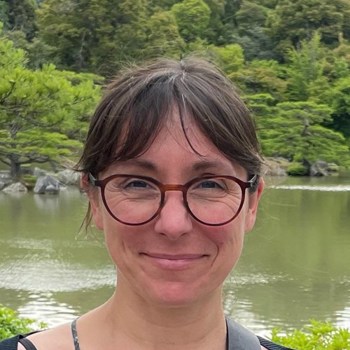
Ewa Paluch
University of Cambridge
United Kingdom
Session V: Mechanobiology
Wednesday 26 March 11:00 - 12:30
Hall 1A
Programme: Cell and developmental biology
Biologists @ 100 lunch and exhibition
Hall 1A
When
Wednesday 26 March
12:30 - 13:30
Location
Hall 1A
Session VI: Biology across scales
Hall 1A
When
Wednesday 26 March
13:30 - 15:00
Location
Hall 1A
Session Description
| 13:30 - 13:50 | Hari Schroff, HHMI Janelia, USA |
| 13:50 - 14:05 | Selected speaker 11 |
| 14:05 - 14:25 | Alain Chédotal, Institut de la Vision, France |
| 14:25 - 14:40 | Selected speaker 12 |
| 14:40 - 15:00 | Olivier Pourquié, Harvard University, USA |
Speakers
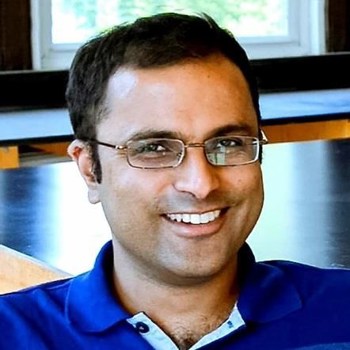
Hari Shroff
Howard Hughes Medical Institute
United States
Dr. Hari Shroff received a B.S.E. in bioengineering from the University of Washington in 2001, and under the supervision of Dr. Jan Liphardt, completed his Ph.D. in biophysics at the University of California at Berkeley in 2006. He spent the next three years performing postdoctoral research in Eric Betzig’s lab at the Howard Hughes Medical Institute's Janelia Research Campus where his research focused on the development of photoactivated localization microscopy (PALM), an optical super-resolution technique that earned Betzig a share of the 2014 Nobel Prize in Chemistry. For the next thirteen years, Shroff headed the Laboratory of High Resolution Optical Imaging at the National Institute of Biomedical Imaging and Bioengineering at the National Institutes of Health, working to improve fluorescence microscopy methods suited for volumetric time-lapse (‘4D’) imaging. Commercialized inventions from this period include dual-view selective plane illumination microscopy (diSPIM) and instant super-resolution microscopy (iSIM). Shroff recently returned to Janelia, where he continues to push the envelope in biological imaging. Current areas of research include adaptive optics, deep learning, and the study of brain development in simple organisms.
Session VI: Biology across scales
Wednesday 26 March 13:30 - 15:00
Hall 1A
Programme: Cell and developmental biology
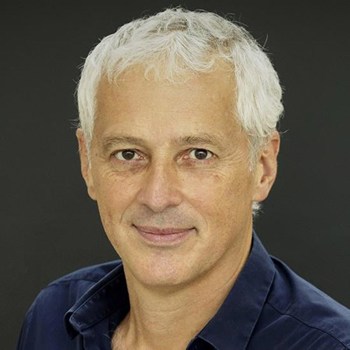
Alain Chedotal
Institut De La Vision & Melis
France
Alain Chédotal, is researcher at INSERM and since 2008 group leader at the Vision institute in Paris. He is also Professor at Lyon University and Hospital. He received his PhD degree from Pierre & Marie Curie University in Paris did a postdoc at UC Berkeley. His lab studies the development and evolution of nervous system connectivity. He has pioneered the use of tissue-clearing methods and light sheet microscopy to study embryogenesis. He is the coordinator of the HUDECA consortium a state-of-the-art INSERM interdisciplinary program whose goal is to build an atlas of embryonic and fetal human organs.
Session VI: Biology across scales
Wednesday 26 March 13:30 - 15:00
Hall 1A
Programme: Cell and developmental biology
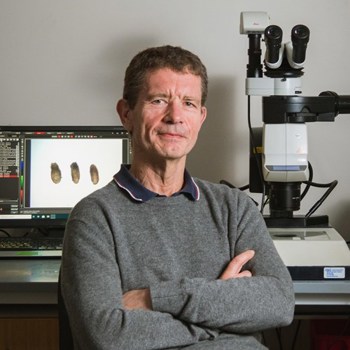
Olivier Pourquié
Harvard University
United States
Session VI: Biology across scales
Wednesday 26 March 13:30 - 15:00
Hall 1A
Programme: Cell and developmental biology
Afternoon refreshment break and exhibition
Hall 1A
When
Wednesday 26 March
15:00 - 15:30
Location
Hall 1A
Session VII: Conceptual frontiers
Hall 1A
When
Wednesday 26 March
15:30 - 17:00
Location
Hall 1A
Session Description
| 15:30 - 15:50 | Michael Milinkovitch, University of Geneva, Switzerland |
| 15:50 - 16:05 | Selected speaker 13 |
| 16:05 - 16:25 | Matthias Heinemann, University of Groningen, The Netherlands |
| 16:25 - 16:40 | Selected speaker 14 |
| 16:40 - 17:00 | Anja Geitmann, McGill University, Canada |
Speakers
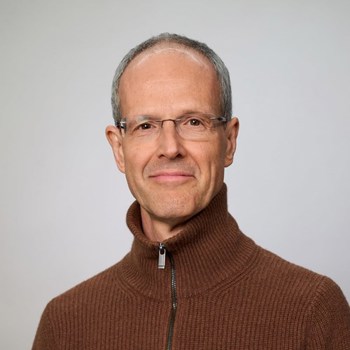
Michel Milinkovitch
University Of Geneva
Switzerland
Michel Milinkovitch is Full Professor in the Department of Genetics & Evolution at the University of Geneva (Switzerland) and President of the Division of Biology since 2019. He is also a member of the Institute of Genetics and Genomics in Geneva (iGE3) since its foundation (2011) and a Group leader of the Swiss Institute of Bioinformatics (SIB) since 2014. In his ‘previous life’ as an evolutionary geneticist, he contributed to quantitative analysis and modelling in Molecular Phylogenomics and Applied Evolutionary Genetics. He has developed concepts, analytical tools, and algorithms/models for multiple sequence alignments, phylogeny inference and haplotypic network building. His recent focus (since 2008) is on Evolutionary Developmental Genetics (Evo-Devo) and the Physics of Biology. He specialises on non-classical model species in reptiles and mammals and integrates data and analyses from comparative genomics, molecular developmental genetics, as well as mathematical modelling and numerical simulations. He has published over 120 papers in international peer-reviewed journals (including Nature, Nature Communications, Science, Science Advances, PNAS, PRL, Mathematics). He has given over 150 talks around the world. He has been reviewer for over 50 peer-reviewed international biology and physics journals, and has served as external reviewer for academic promotions, grant proposals, and PhD committees in Europe and the USA. He has served on the Editorial Board of scientific journals and has supervised over 20 Ph.D. theses. He has been a member of the ERC (European Research Council) evaluation program and has chaired one of its panels. His work has made on multiple occasions the headlines in the media (BBC; National Geographic; Swiss, European and US Televisions and radios; The New York Times, The Washington Post, …). He is the co-founder (November 2001) of the spin-off Delphi Genetics which was acquired in 2021 by Catalent, a giant in innovative drug development and delivery. He is married and has 4 children.
Session VII: Conceptual frontiers
Wednesday 26 March 15:30 - 17:00
Hall 1A
Programme: Cell and developmental biology
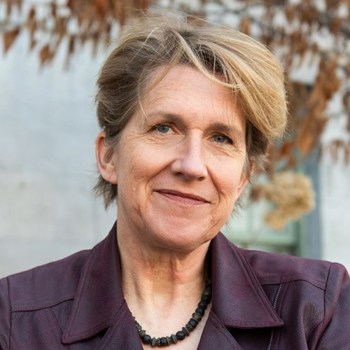
Anja Geitmann
McGill University
Canada
Dr. Geitmann’s research focuses on the cellular processes driving plant reproduction and morphogenesis. She holds the Canada Research Chair in Biomechanics of Plant Development and leads an interdisciplinary team of biologists and engineers. Her research combines cell biology with high-end imaging, micromanipulation, and computational modeling to study the mechano-structural underpinnings of plant functioning. Dr. Geitmann has served as the President of the International Association of Plant Reproduction Research, the Microscopical Society of Canada and the Canadian Society of Plant Biologists.
Session VII: Conceptual frontiers
Wednesday 26 March 15:30 - 17:00
Hall 1A
Programme: Cell and developmental biology
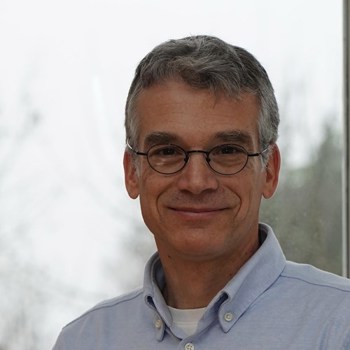
Matthias Heinemann
University of Groningen
The Netherlands
Session VII: Conceptual frontiers
Wednesday 26 March 15:30 - 17:00
Hall 1A
Programme: Cell and developmental biology
Biologists @ 100 drinks reception, posters and exhibition
Hall 1A
When
Wednesday 26 March
17:00 - 18:30
Location
Hall 1A
Biologists @ 100 gala dinner
When
Wednesday 26 March
19:30 - 23:00
Biologists @ 100 plenary session
Emerging technologies
Hall 1A
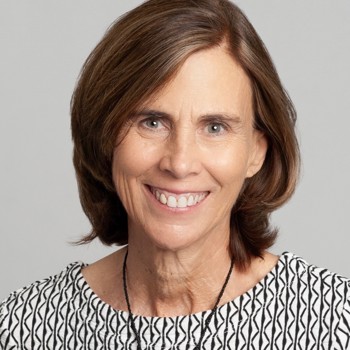
Jennifer Lippincott-Schwartz
HHMI Janelia
United States
Biologists @ 100 plenary session
Thursday 27 March 09:00 - 10:30
Hall 1A
Plenary sessions
Panel discussion
Thursday 27 March 09:00 - 16:45
Hall 1A
Programme: Cell and developmental biology
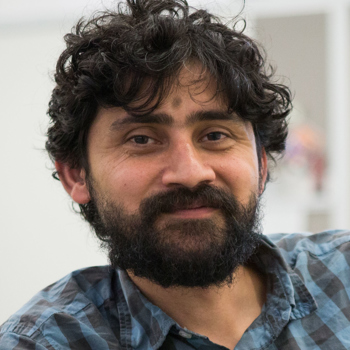
Manu Prakash
Stanford University
United States
Manu Prakash is an Associate Professor in the Department of Bioengineering at Stanford University working in the field of physical biology and frugal science. He runs a curiosity driven lab at Stanford combining his passion for basic science while also developing ultra-affordable and accessible technologies that are used around the world for science education, research, and public health with the goal of democratizing access to scientific tools. Manu grew up in India and got his PhD from MIT, was a Junior Fellow at Harvard Society of Fellows and a 2016 MacArthur Fellow.
Biologists @ 100 plenary session
Thursday 27 March 09:00 - 10:30
Hall 1A
Plenary sessions
Morning refreshment break and exhibition
Hall 2
When
Thursday 27 March
10:30 - 11:00
Location
Hall 2
Session VIII: Stem cell based models of development
Hall 1B
When
Thursday 27 March
11:00 - 12:30
Location
Hall 1B
Session Description
| 11:00 - 11:20 | Nicholas Rivron |
| 11:20 - 11:30 | Luke Simpson |
| 11:30 - 11:50 | Vanessa Ribes |
| 11:50 -12:00 | Isha Goel |
| 12:10 - 12:20 | Benjamin Steventon |
Speakers
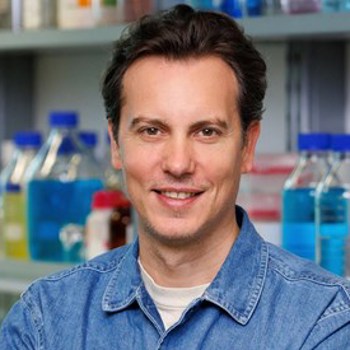
Nicolas Rivron
IMBA, Austrian Academy of Science
Austria
Nicolas Rivron is a group leader at the Institute for Molecular Biotechnologies of the Austrian Academy of Sciences (Vienna, Austria). He led the development of the first complete embryo model. It reflects the blastocyst in mice (2018, Nature) and humans (2021, Nature) and is named blastoid. Blastoids are unique in two respects: they are complete and they represent the pre-implantation stage thereby enabling implantation in utero. Using blastoids, the Rivron lab explores (1) the conserved principles of embryonic self-organization, especially the coordination and pacing of molecular and mechanical signalings in the context of human heterochronies, and (2) the human genetic traits that have led to our low fecundity compared to other primates (50% of fertilized oocytes never develop). This fundamental research aims to uncover the evolutionary constraints and vulnerabilities of human embryogenesis, knowledge of which is necessary for the development of novel therapeutic approaches to global health challenges such as family planning, fertility decline and prenatal preventive medicine.
Session VIII: Stem cell based models of development
Thursday 27 March 11:00 - 12:30
Hall 1B
Programme: Cell and developmental biology
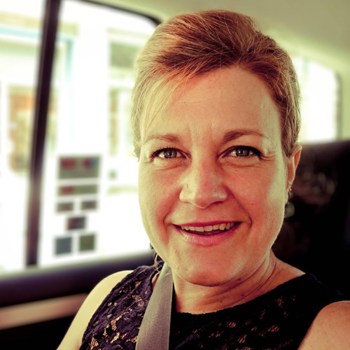
Vanessa Ribes
Session VIII: Stem cell based models of development
Thursday 27 March 11:00 - 12:30
Hall 1B
Programme: Cell and developmental biology
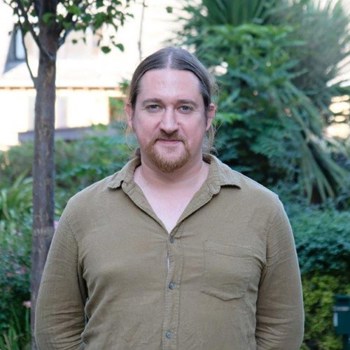
Benjamin Steventon
University of Cambridge
United Kingdom
Ben Steventon trained in the labs of Roberto Mayor (as PhD 2004-2008, UCL, UK), Andrea Streit (as PostDoc 2008-2012, KCL, UK), Jean-Francois Nicolas and Estelle Hirsinger (as PostDoc 2011-2013, Institute Pasteur, France), Scott Fraser (as Marie-Curie Outgoing Fellow 2013-2014, USC, USA) and Alfonso Martinez Arias (as Marie-Curie Incoming Fellow 2014-2015, Cambridge). He started his research group in 2016 supported by a Wellcome Trust/Royal Society Sir Henry Dale fellowship. In November 2021 he transitioned to an Assistant Professor in the Department of Genetics (University of Cambridge).
Session VIII: Stem cell based models of development
Thursday 27 March 11:00 - 12:30
Hall 1B
Programme: Cell and developmental biology
Session IX: Cell migration and communication
Hall 1C
When
Thursday 27 March
11:00 - 12:30
Location
Hall 1C
Session Description
| 11:00 - 11:20 | Ana-Maria Lennon-Dumeni, Institut Curie, France |
| 11:20 - 11:35 | Selected speaker 16 |
| 11:35 - 11:55 | Crystal Rogers, University of California, Davis, USA |
| 11:55 - 12:10 | Selected speaker 18 |
| 12:10 - 12:30 | Marisa Merino, University of Liverpool, UK |
Speakers
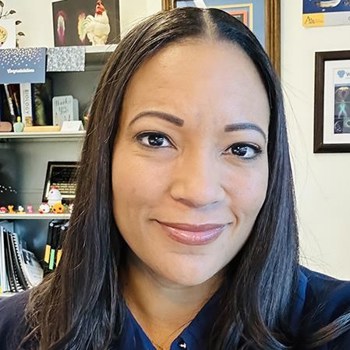
Crystal Rogers
University Of California Davis
United States
Dr. Rogers is currently an Associate Professor at the University of California, Davis. She obtained her BS at UCLA, her PhD at Georgetown University with Dr. Elena Silva Casey, and then moved to a postdoctoral fellowship with Dr. Marianne Bronner at Caltech. Her lab studies the molecular mechanisms that drive neural crest cell formation, migration, and differentiation using avian and amphibian models.
Session IX: Cell migration and communication
Thursday 27 March 11:00 - 12:30
Hall 1C
Programme: Cell and developmental biology
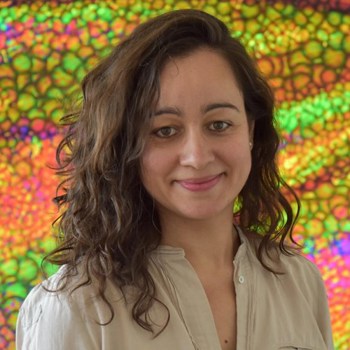
Marisa Merino
University Of Liverpool
United Kingdom
I have always been passionate to understand how cells within tissues communicate to build up successful organisms. Indeed, my work shows for the first time that, Cell Competition is a physiological mechanism (Merino et al. 2013, Current Biology) which controls organismal lifespan (Merino et al. 2015, Cell & Merino et al. 2016, Trends in Cell Biology).
The difference between unfit and fit cells can be encoded by different levels of Dpp signalling. In the wing of flies and the pectoral fin of fish, the decay length (i.e. how far the morphogen reaches) of these morphogen gradients (Dpp and BMP) is proportional to the length of the growing tissue during development, namely they scale. Different levels of Dpp signalling are reminiscent of the steepness of the gradient that is-its decay length. In my recent work (Merino et al. 2022, Nature Cell Biology & Merino et al. 2022, Trends in Cell Biology), I have made a discovery of a novel phenomenon, Death-Mediated Scaling: the scaling of TGF-beta type growth factors (i.e. Dpp morphogen) is mediated also by Cell Death. On the other hand, disrupted TGF-beta signalling is one of the most common causes of tumorigenesis.
Death-mediated scaling machinery might provide a molecular toolbox exploited by cancer cells.
Session IX: Cell migration and communication
Thursday 27 March 11:00 - 12:30
Hall 1C
Programme: Cell and developmental biology

Ana-Maria Lennon-Dumeni
Institut Curie
France
Session IX: Cell migration and communication
Thursday 27 March 11:00 - 12:30
Hall 1C
Programme: Cell and developmental biology
Biologists @ 100 lunch and exhibition
Hall 2
When
Thursday 27 March
12:30 - 13:30
Location
Hall 2
BSCB / BSDB medal and lecture
Hall 1A
When
Thursday 27 March
13:30 - 15:15
Location
Hall 1A
Session Description
13:30-14:10 BSCB Women in Science medal
14:10-14:45 BSCB Postdoc Medal
14:45-15:15 BSDB PhD student Beddington Medal Lecture
Afternoon refreshment break and exhibition
Hall 2
When
Thursday 27 March
15:00 - 15:30
Location
Hall 2
Panel discussion
Hall 1A
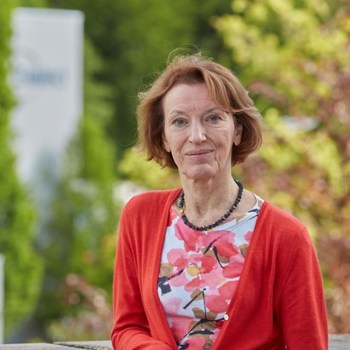
Maria Leptin
European Resarch Council
Germany
Panel discussion
Thursday 27 March 15:45 - 16:45
Hall 1A
Programme: Cell and developmental biology
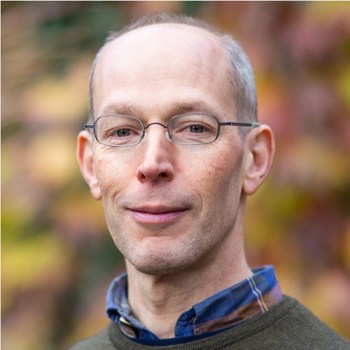
Nick Hopwood
University of Cambridge
United Kingdom
Nick Hopwood is Professor of History of Science and Medicine in the Department of History and Philosophy of Science, University of Cambridge, and a co-chair of Cambridge Reproduction. Among other works, he is the author of Haeckel’s Embryos: Images, Evolution, and Fraud (Chicago, 2015), which won the Levinson Prize of the History of Science Society, and co-editor of Reproduction: Antiquity to the Present Day (Cambridge, 2018), which is available as a highly illustrated paperback.
Panel discussion
Thursday 27 March 15:45 - 16:45
Hall 1A
Programme: Cell and developmental biology

Jennifer Lippincott-Schwartz
HHMI Janelia
United States
Biologists @ 100 plenary session
Thursday 27 March 15:45 - 10:30
Hall 1A
Plenary sessions
Panel discussion
Thursday 27 March 15:45 - 16:45
Hall 1A
Programme: Cell and developmental biology
Closing remarks
Hall 1A
When
Thursday 27 March
16:45 - 17:00
Location
Hall 1A
Session Description
16:45-17:00 Closing remarks




